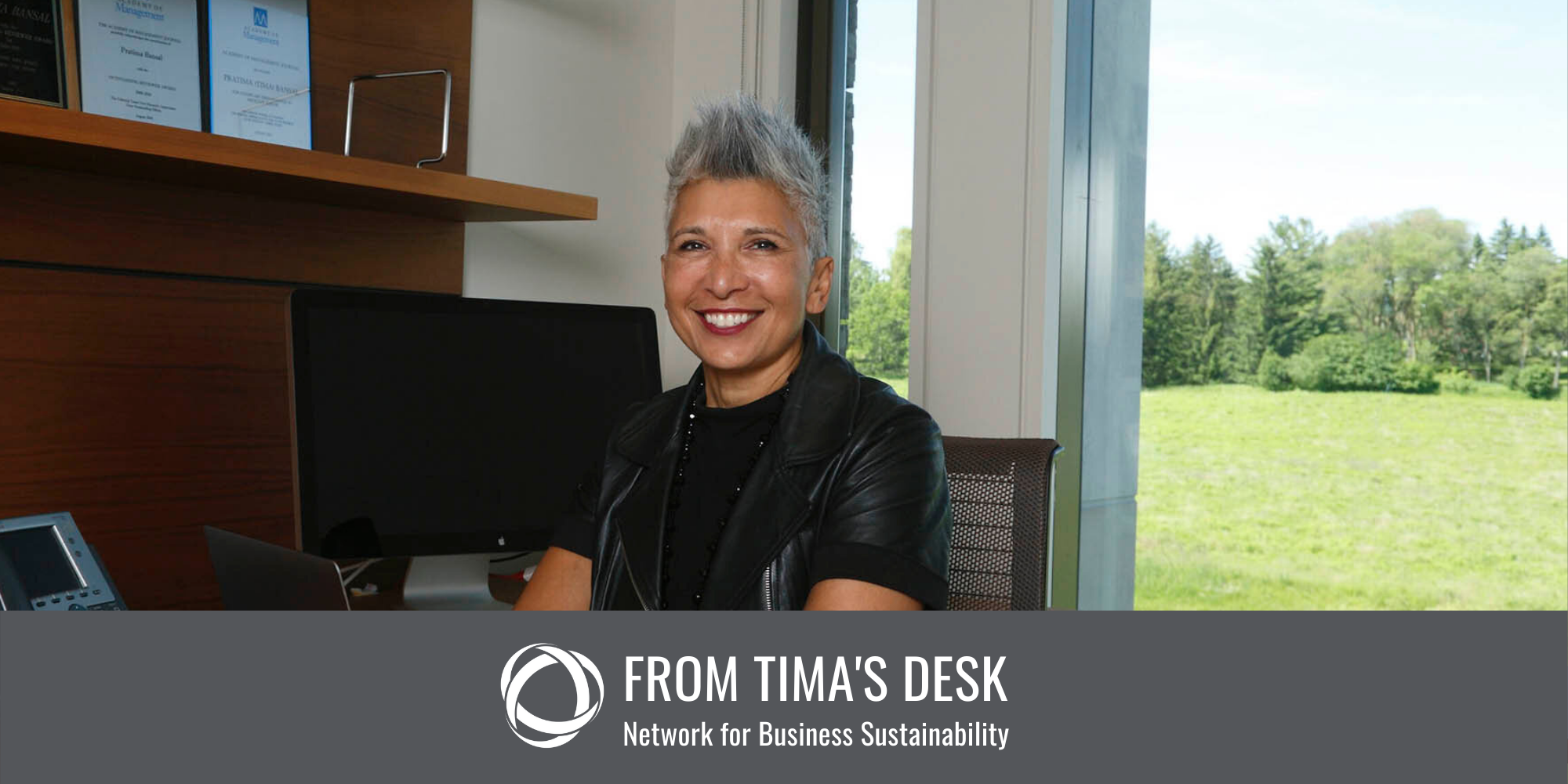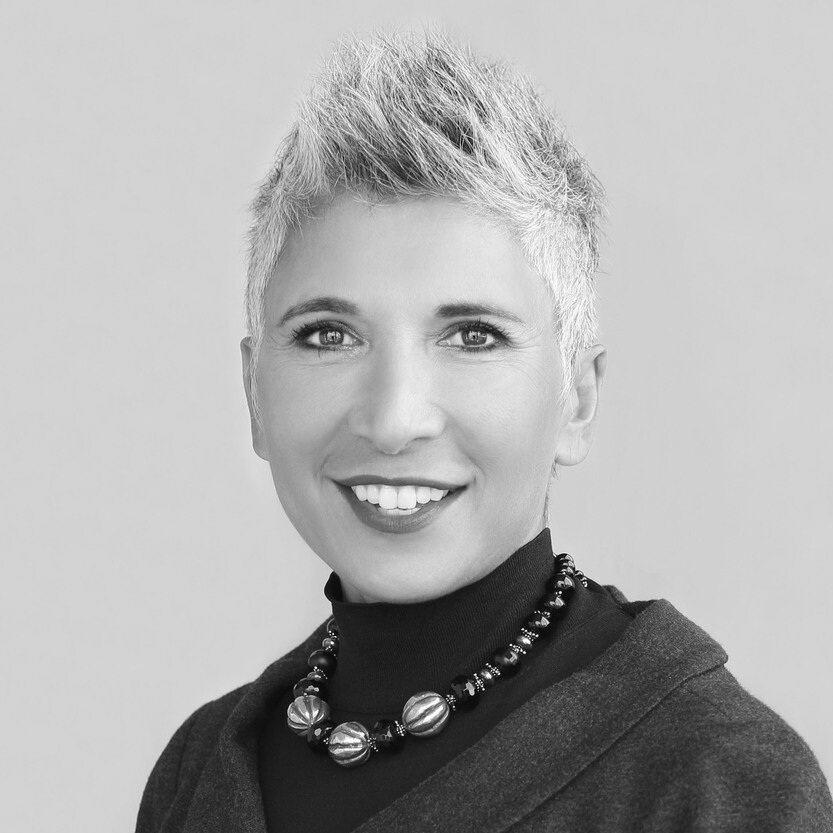I am dismayed by how many good people disconnect their personal beliefs and values in their day job.
Dr. Tima Bansal is Founder of the Network for Business Sustainability.
I spent much of my February in Australia, giving talks and speaking to local academics and managers about sustainability. One conversation over lunch with an academic colleague was particularly poignant. It went something like this:
Him: I am setting up accelerators around the world, focusing primarily on Asia. We provide expertise and access to our networks; the local organization manages the day-to-day operations.
Me: Do you or the host organization screen for the social impacts of the initiatives? For example, would the host support an initiative that develops a new gun or a nuclear weapon?
Him: No, we don’t screen the initiatives, but I’m sure that wouldn’t happen.
Me: How can you be sure?
Him: Well, I can’t be. But, even if they did, our net impact would be positive. We encourage entrepreneurs to create wealth through good ideas. For example, we introduced Shark Tank to India, in which entrepreneurs compete against other entrepreneurs for the best ideas.
Me: Seriously?? You called it ‘shark tank’ and you say you care about making the world better? Doesn’t ‘shark’ undermine the notion of a better world? So, you’re basically teaching entrepreneurs to make money at any cost.
Baffled by my reaction, this colleague started to describe the social good he was doing in his spare time by bringing medical devices to Indians. I suggested to him that he could combine his hobbies with his occupation. He could, for example, screen the initiatives that the accelerators accepted by their net social impact.
I admit that I am not sure I made headway. It was clear that this colleague saw social responsibility as something he practiced in his spare time. I am dismayed by the frequency of this type of conversation: good people who disconnect their personal beliefs and values in their day job.
Such disconnects have been well documented in research in psychology and the behavioral sciences. Milgram’s famous obedience experiments in the 1960s documented people administering heavy shocks to other people because they were simply asked to do so. In the 1970s, Zimbardo documented people acting sadistically when asked to play the role of prison guards with people who were playing the role of prisoners. Darley and Latané called the failure of 38 witnesses to stop the prolonged murder of Kitty Genovese in 1964 the bystander effect. More recent work by Sachdeva, Iliev and Medin, called moral licensing, found that people justified morally questionable actions at one point in time by performing good work at a different point in time.
I know these individual studies have come under fire, but there is wide and robust support for the general pattern of findings: good people behave badly in some social contexts.
I argue that there may be another explanation that is not based in psychology, but in economic ideology.
In 1970, Milton Friedman wrote about the ‘social responsibilities of business’ in the New York Times Magazine. His argument was that managers need to work in the best interests of shareholders, and practice their social responsibilities at home. Corporate social responsibility, in Friedman’s words, seeks “to make as much money as possible while conforming to the basic rules of the society.”
I wonder if this thinking has become so dogmatic that many managers assume that wearing two hats is simply ‘the right thing to do.’ Managers justify doing bad things in their professional life, because responsibility is something suitable to one’s personal life. Business is about business, at any cost as long as it is legal. Thinking about social responsibility distracts managers from making money and achieving corporate goals.
Thankfully, not everyone embraces Friedman’s dogma. I taught in an executive program for Maple Leaf Foods last week. A senior vice president said that she “brings her whole self to the office.” She does not wear two hats. Rather than adapting her personal beliefs to the company, she helped transform the company to her own beliefs. Maple Leaf Foods now aspires to be the most ‘sustainable protein company’ on earth.
She said that she is a better leader because she wears only one hat. Not all the conversations at the executive table were easy, as many of her peers always asked for ‘the bottom line.’ But, she chooses her timing wisely and argues persuasively. She convinced the entire executive team of the business opportunities by aligning personal values with professional values. I have now taught four cohorts of Maple Leaf Foods managers and am struck by the number of people who took the job or have continued to work there because they are excited about the company’s ambition.
Most sustainability professionals are able to make connections between their personal and professional lives. They blend their preoccupations with their occupation. I sincerely believe that to advance sustainability in business, we need people to bring their whole self to work.
In the next editorial from my desk, I will speak more to this disconnect, especially within business schools.
Continuing the Conversation
As always, I welcome your reactions. Please feel free to message me (@TimaBansal, tbansal@ivey.ca) or the NBS community (@NBSnet) privately or publicly.
More From Tima’s Desk
Dr. Tima Bansal, NBS’s Founder, regularly shares her observations about business sustainability. Click the button below to see the full series.




Add a Comment
This site uses User Verification plugin to reduce spam. See how your comment data is processed.This site uses User Verification plugin to reduce spam. See how your comment data is processed.